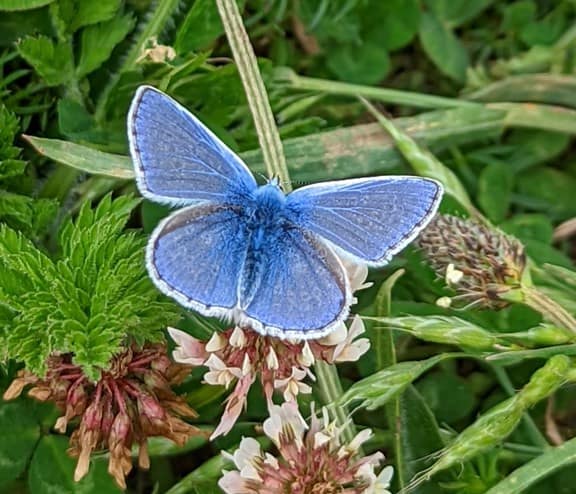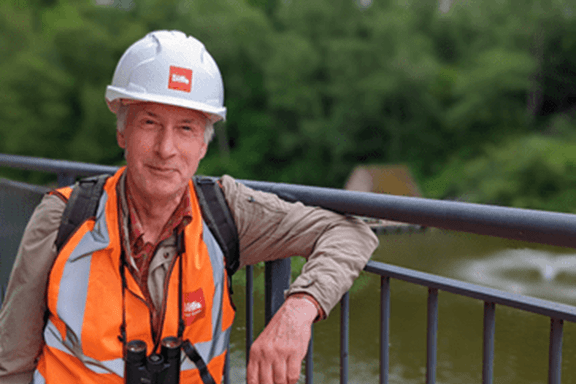
‘A magical moment’: Rare butterflies thriving at former landfill
Butterflies thrive at former landfill turned nature reserve
More than 13 species of butterfly, including two of the UK’s most vulnerable, are helping transform a former landfill site in West Sussex into a thriving wildlife haven. Grizzled Skipper and Small Heath, which both feature in a new Red List of the most at-risk species of butterflies in Britain, are regular visitors to Biffa’s Brookhurst Wood site in Horsham.
Both species are classed as ‘vulnerable’, meaning they face a high risk of extinction in the wild due to habitat loss and climate change. But ongoing conservation efforts at Brookhurst Wood, including the planting of a 14-hectare wildflower habitat, are having encouraging results. Brookhurst Wood closed as a landfill site in 2018 and is being carefully returned to nature as part of a long-term commitment by Biffa.
Working with the charity Butterfly Conservation and their ‘Building Sites for Butterflies’ programme, the restoration scheme involves the creation of butterfly-friendly grasslands and meadows, much of which has been lost in Sussex. Other species spotted during the butterfly identification day at Brookhurst Wood included the Dingy Skipper - another UK conservation priority - as well as the Painted Lady, Green Hairstreak, Brimstone, Orange Tip and Common Blue, (pictured).
David Bridges, of the Sussex branch of Butterfly Conservation, said: “Butterflies really capture the public imagination. Not only are they beautiful to look at, but they also remind us of warm, sunny days in the garden or walking through the countryside. Unfortunately, the UK has become one of the world’s most nature-depleted countries, and 40 per cent of British butterfly species are now at risk of extinction. Butterflies are incredibly important as indicators of a healthy ecosystem. Just like bees and other insects, they pollinate flowers, some crops and fruit and, together with moths, they are an important source of food for birds and bats. It’s been wonderful working with Biffa at Brookhurst Wood to create a butterfly-friendly habitat, and now we’re really starting to see the fruits of our labour. To see two species of butterfly that are classed as vulnerable thriving there, was a magical moment. With much more restoration work planned at the site, I can’t wait to see what other species we’ll record there over the next few years.”
Almost a third of Biffa’s land across the UK is managed for biodiversity. And while this exceeds the company’s 2030 target already, Biffa has pledged to continue to enhance biodiversity even further.
As well as butterflies and moths, Brookhurst Wood is home to endangered Red List birds such as Linnet and Nightingale.
Vicky Clack, Biffa’s National Environment Control Manager, said: “It’s been an absolute joy watching Brookhurst Wood transform from a working landfill site into a safe sanctuary for rare butterflies and birds. We can’t wait to see how the plants and animals continue to thrive over the coming years.”
